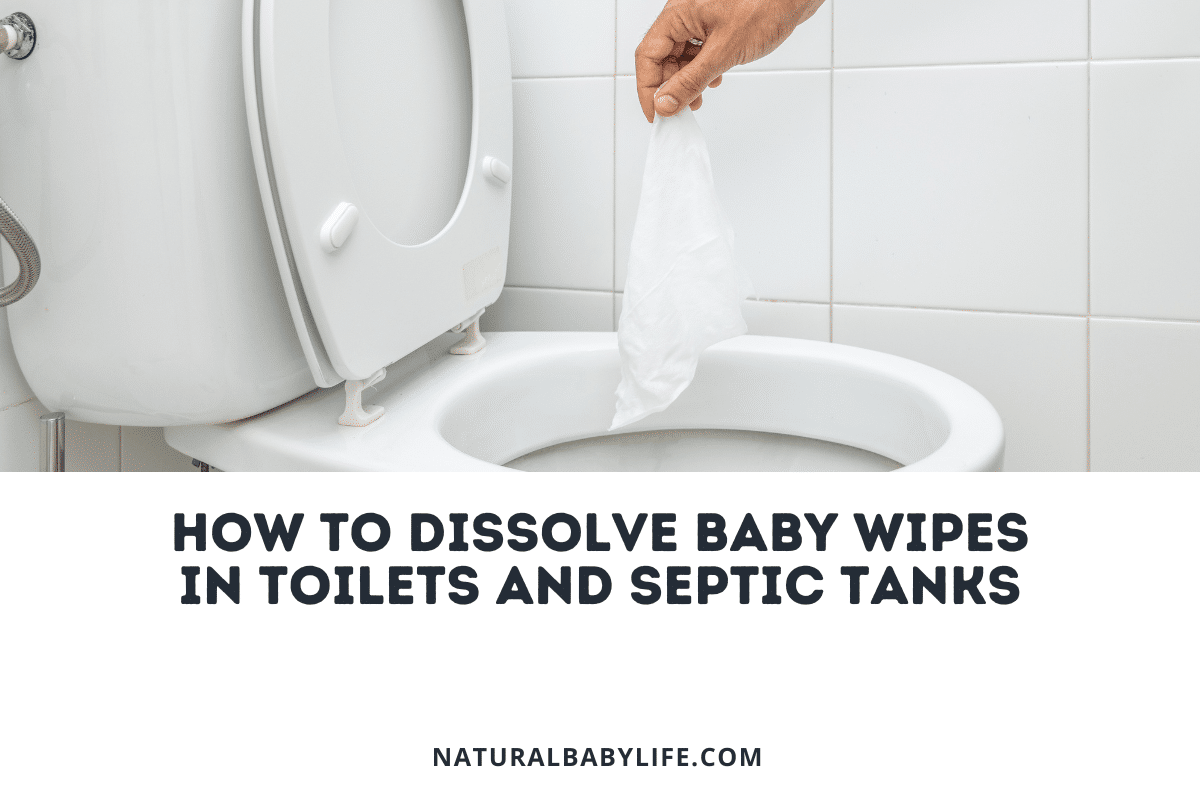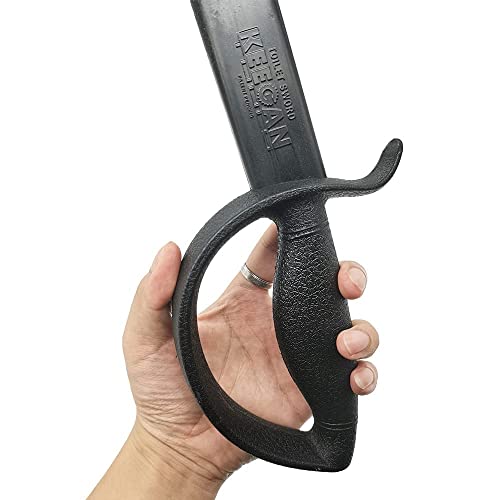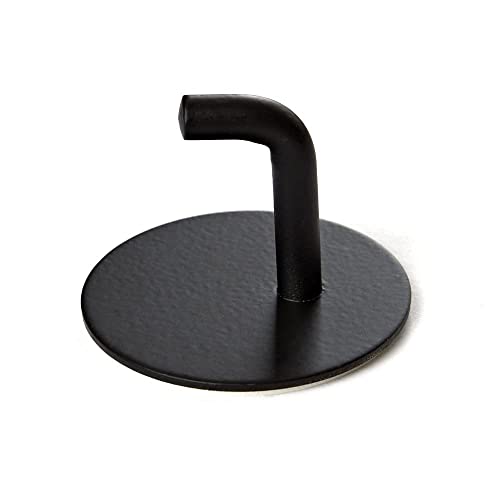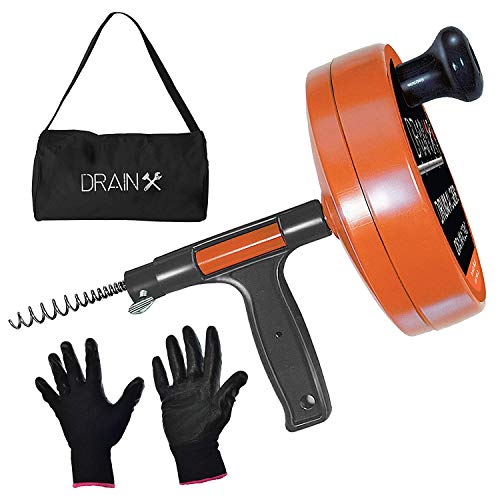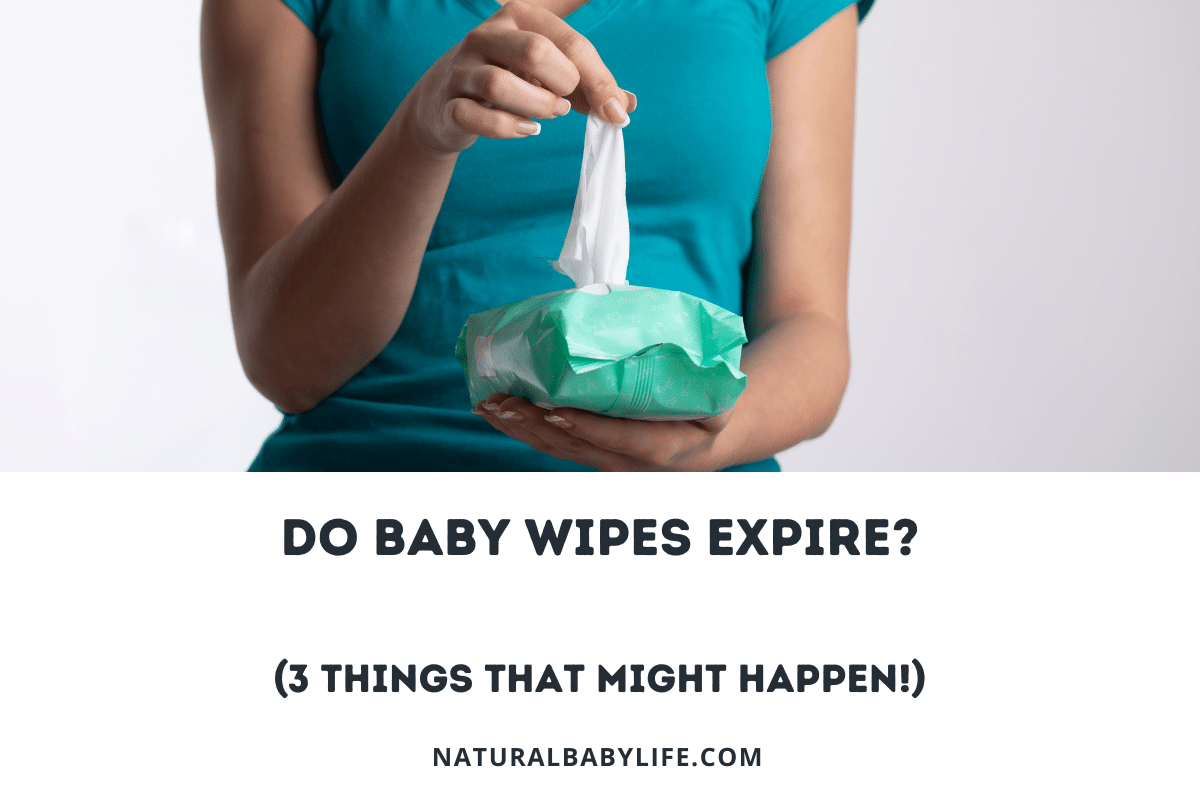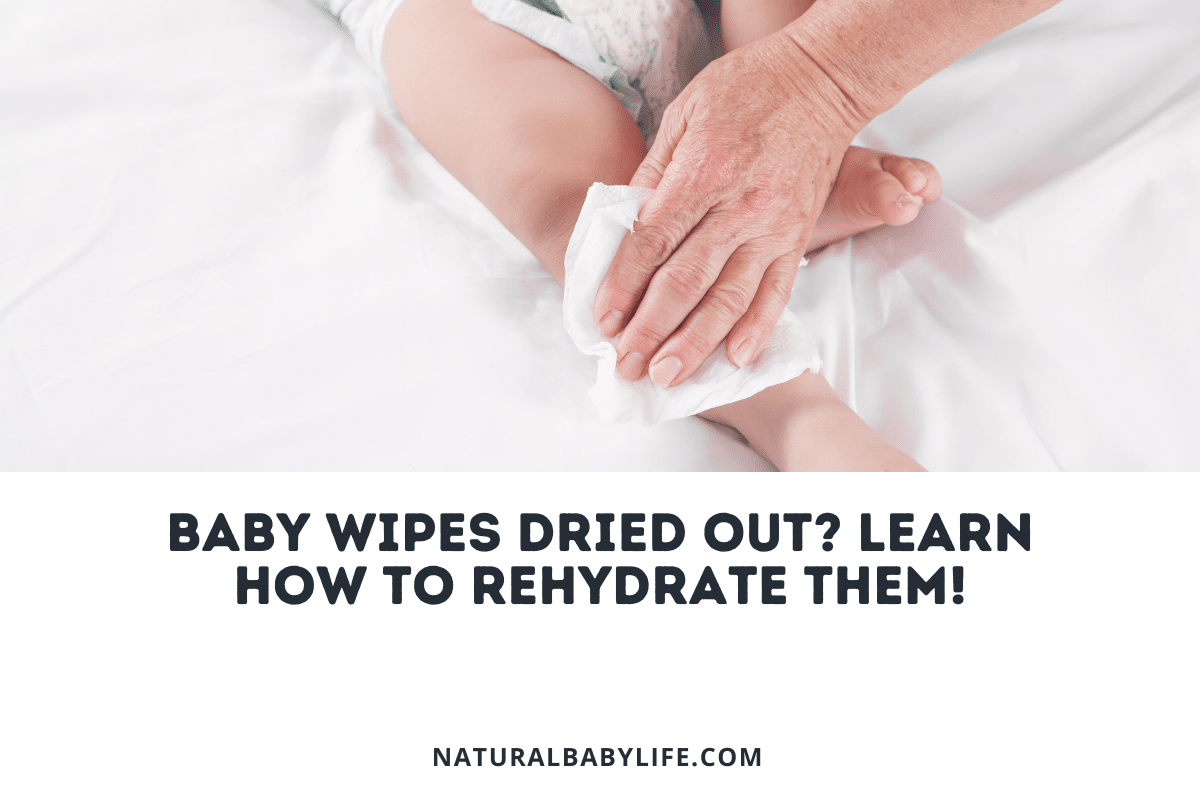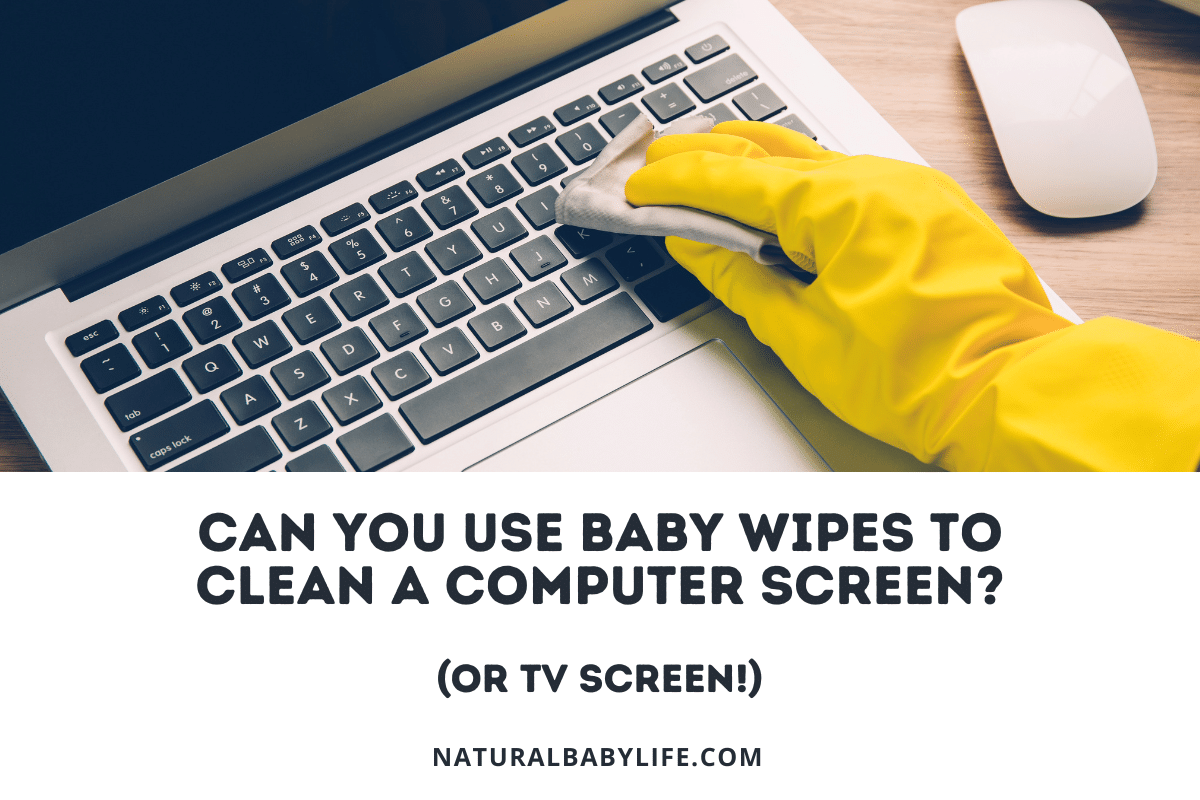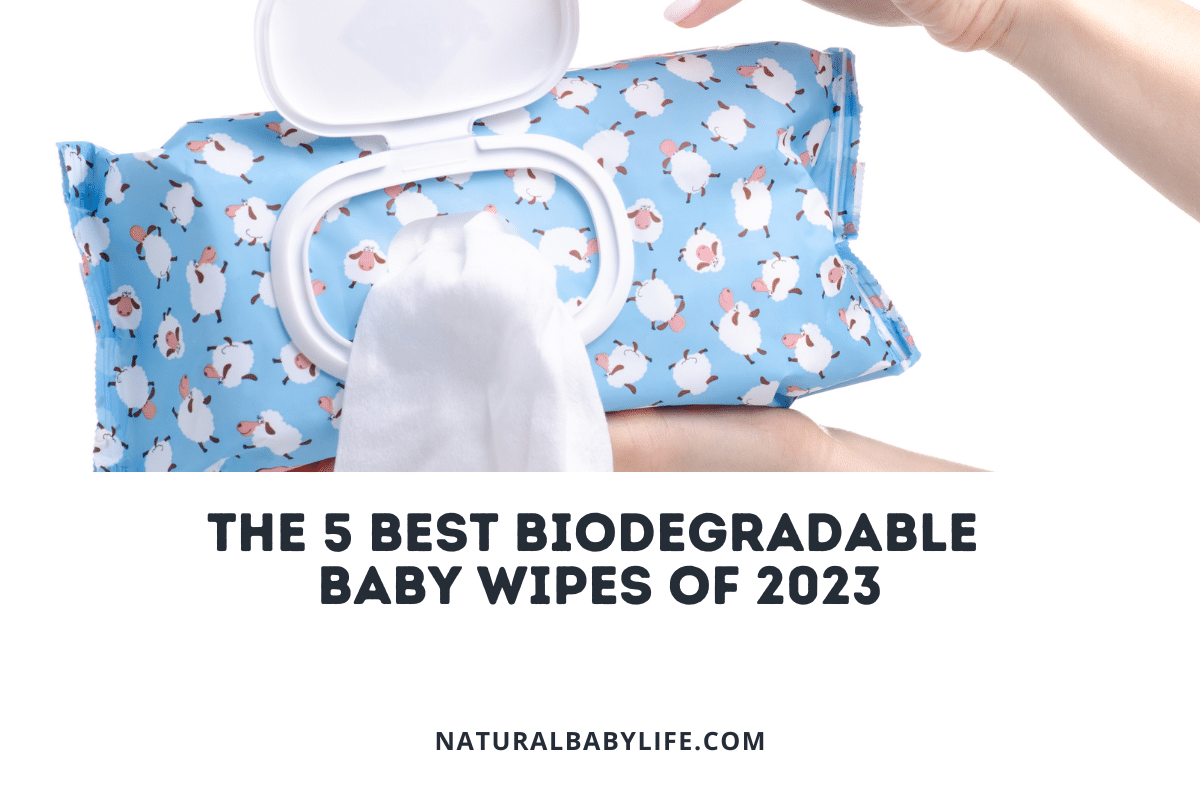If you’re searching for how to dissolve baby wipes in toilets and septic tanks because you’re thinking about doing it or you’ve already done it and need help, you’re in the right place. It’s not always common knowledge that baby wipes shouldn’t be flushed down the toilet, even if they are marketed as being flushable.
Accidentally flushing baby wipes can lead to a clog in your toilet, septic tank, or local sewer system. While some wipes claim to be flushable, most will not break down even with the use of chemical drain cleaners. If your toilet is clogged by wipes, you should remove them by hand or with a snake or augur to avoid creating a bigger problem.
So, what do you do when someone flushes a bunch of baby wipes down the toilet and it has become clogged? Let’s learn how to unclog a toilet filled with baby wipes, whether or not anything can dissolve baby wipes in the toilet or septic tank, and other helpful information!
Table of Contents
How to dispose of baby wipes
Have you ever considered cleaning your baby’s bottom with toilet paper? Okay, maybe in a pinch, but not when you have a better option.
That is because baby wipes and toilet paper are designed to perform what is basically the same task, but they fulfill a completely different need.
As parents, we need wipes to be both strong and soft, come pre-moistened — either with water or a water-based cleanser — and be cheap enough to go through several at a time. For most of us, biodegradability is not exactly high on our list of priorities.
Most wipes are made of a nonwoven fabric, which means it is bonded together using a chemical or heat instead of being woven like traditional fabric.
This allows wipes to be strong like a cloth while being soft and disposable, but it also leads to clogging issues in your toilet and pipes since they don’t break up like toilet paper or allow water to pass easily through.
All this means that if you get a blockage, the chemical uncloggers you might use on your sink or bathtub won’t do any good.
Most uncloggers work by coating the individual pieces of the clog and either making them slick so the clog will release or eating through the problem, but they tend not to work on wipes, partially due to their size, and partially because there is no weave for the chemical to penetrate and loosen.
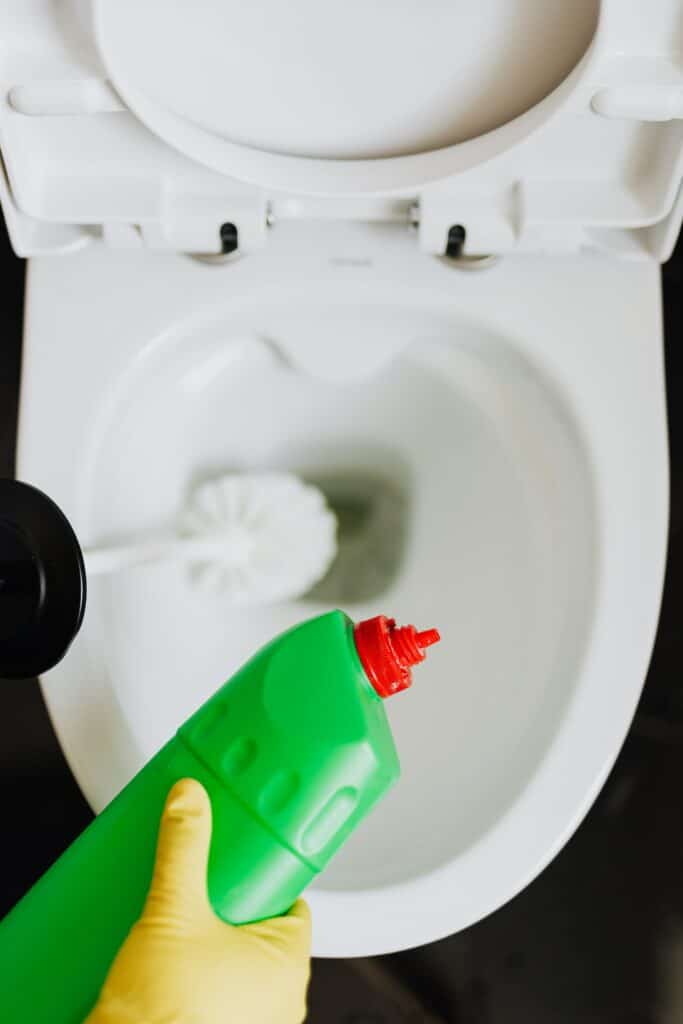
Because of this, you should only throw baby wipes in the trash–never the toilet.
Are baby wipes flushable
Companies that market their wipes as “flushable” do so on a technicality.
Yes, these wipes can be flushed down the toilet, at least as long as you are only attempting to flush one or two of them. What happens after they leave the toilet itself and enter your pipes, your septic system, or your community’s water system is a completely different story.
I spoke to a representative from my local wastewater treatment facility and she told me that most people don’t realize that so-called “flushable wipes” really aren’t.
“The clogs that build up are insane,” she said, “and it’s even worse when that stuff mixes with the grease and everything else that people pour down the sink.”
Although you may not experience a clog the first, second, or hundredth time you send a “flushable” wipe through your sewage system, you are contributing to a problem that will eventually cause hundreds to thousands of dollars worth of damage.
What happens if you accidentally flush a baby wipe
If you (or your toddler) just flushed baby wipes down the toilet, you should check and see if there is an immediate clog.
The clog may still be trapped in the drain. In that case, grab a pair of gloves (a trash bag works in a pinch) and pull the wad out. It may seem pretty gross now, especially if they’re used wipes, but a bill from your plumber would definitely be worse!
The clog may be further down the line, but still accessible. If you have a toilet snake, that would be ideal since it is specially designed to be both flexible enough to wiggle through the toilet drain and pipes, and is covered in a protective outer layer to keep it from damaging your toilet.
I actually covered how to use a snake to unclog your toilet in much greater detail recently when I explored how to get a diaper out of the toilet!
Since most families do not keep a toilet snake on hand, you can also use a straightened wire hanger. You will need to go more slowly to avoid damaging your toilet, and it will not reach as far, but it may be helpful if there is a mass of wipes just beyond the mouth of the drain.
Keep in mind that your goal is to hook the wipes and drag them back out, not poke and push them further down the line.
Will one baby wipe clog a toilet
While there is always the possibility of a single wipe clogging your toilet, it is unlikely.
If you accidentally flushed one and do not see an immediate issue, don’t panic. If you can fish it out, do so; if you can’t, keep an eye on the issue and try not to do it again.
How do you unblock a toilet full of baby wipes
The good news is that clearing a toilet full of baby wipes ends up being the same process as just one or two.
To clear a toilet full of baby wipes, wear a long glove and first try to pull the wipes out of the toilet. If more wipes remain, use a toilet snake or grabber to grab and pull out the remaining wipes.
In nearly every case, avoid using chemical drain cleaners on baby wipe clogs as they are unlikely to work effectively.
.
Baby wipes in septic systems
Depending on the location of your home, your wastewater will go through either the local sewage system or into your home’s septic tank.
Typically, apartment buildings, neighborhoods, and houses located within the city limits will make use of a central sewage system while houses that are built away from the city are likely to use a septic tank.
Although it is important that you never flush wipes down your toilet no matter where you live, it is possible (if not likely) that you will never see the immediate consequences of doing so if your waste leaves your property and travels through a community water system.
However, if you are flushing into a septic system, the wipes will stay with you and accumulate at the bottom of your tank. This means it’s only a matter of time until you have to deal with it.
You should not use most declogging cleaners in a septic system because they will kill the good bacteria at work there. Although there are some cleaners that are specifically designed for use with septic systems, they are still unlikely to produce serious results once they are diluted in the full tank.
Remember though that just a couple of baby wipes likely won’t cause any real issues. If you have been flushing wipes down the toilet for a while, however, you should be proactive and have yours checked. Signs that your septic tank needs to be pumped include:
- Sluggish draining or flushing
- Your house (inside or out) starts to smell like sewage or sulphur
- Unexplained standing water in your yard
- A particularly green patch of grass around where the septic tank is buried
- Raw sewage overflowing back through your drains
How to dissolve baby wipes in toilets and septic tanks
When you get a clog in your shower, you probably pour some Drano down the drain, let it sit for a few minutes, then rinse it out and everything’s good to go. It should be the same for all clogs, right? Unfortunately, baby wipe clogs are a completely different problem.
Do not try to dissolve baby wipes in toilets or septic tanks.
There are no chemicals or products that will reliably dissolve baby wipes in your toilet or septic tank. Many baby wipes are made from synthetic polymers chemically bonded together into a durable cloth that will take a long time to naturally break down.
That means if you can’t physically remove the clog yourself, you’ll probably have to call a professional.
The same reason that toilet tissue is not good for cleaning or wiping up messes is exactly what makes wipes good at these things. The trade-off though is that wipes do not break down quickly or easily; if they did, you would open a pack of wet wipes and find a pulpy mass instead of a stack of damp cloth-like wipes.
Will Drano dissolve baby wipes
If your toilet is completely clogged due to baby wipes, using a chemical drain cleaner like Drano could actually do far more harm than good.
Even uncloggers that claim not to damage drains can do so if you leave them sitting in your pipes for too long. If you are not able to clear the clog with the chemical, you will either need to attempt to snake it yourself or call a plumber.
Either way, someone will probably have to come into direct contact with the pipe, the clog, or both, and could be directly exposed to the harmful chemical and any reaction it has caused, such as an overheated pipe.
Will bleach dissolve baby wipes
Although you may see recommendations to use bleach to dissolve toilet clogs, it is not effective in dissolving baby wipes.
Bleach works by combining with acidic elements (hair, for example) to form water and salt, thus breaking up the clog. This doesn’t work on wipes because the “nonwoven” part of the fabric means there isn’t really a place for the bleach to get in and start breaking it down.
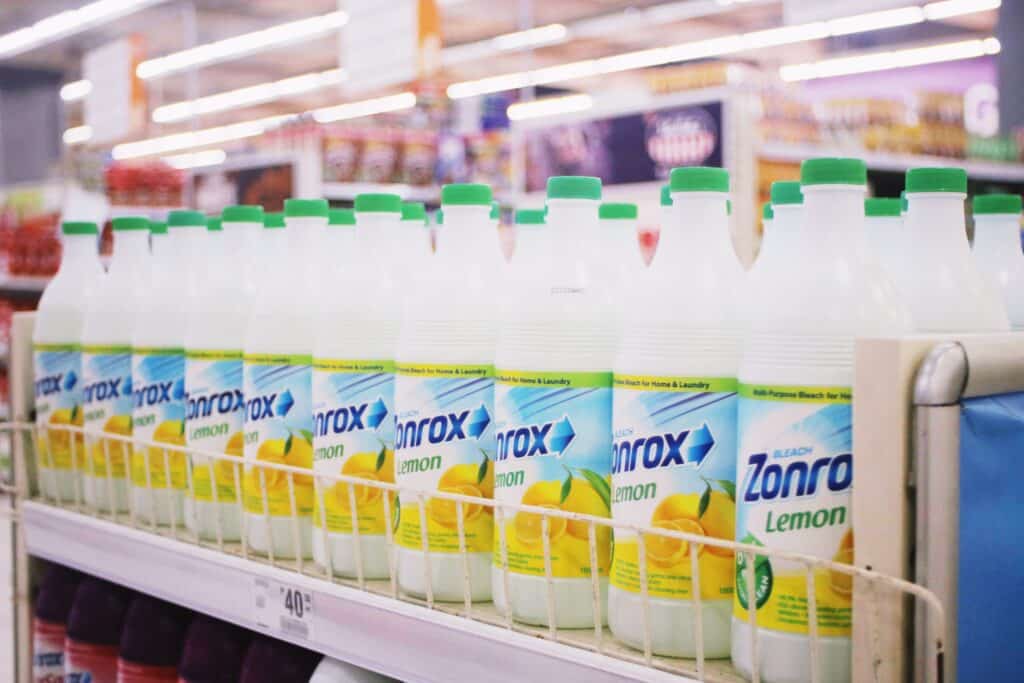
Many of the standard chemical drain openers found in the store contain bleach, and may also have other active agents. Drano Max Gel, for example, includes a caustic chemical and a cleaner to help improve its effectiveness against regular clogs, but it is still ineffective against baby wipe clogs.
Will sulfuric acid dissolve baby wipes?
Sulfuric acid cleaners will dissolve baby wipes, but they must be used with extreme caution.
When using sulfuric acid, you must be sure that you are wearing protective gloves and goggles and working in a well-ventilated area because it may react violently when poured into the water and can create dangerous fumes as it works in the pipes.
It is also important that you never mix sulfuric acid cleaners with bleach-based cleaners as the reaction creates a potentially deadly gas.
Although some types of sulfuric acid drain cleaners claim to be safe for plastic pipes when used correctly, they can damage stainless steel or galvanized pipes, and most varieties cannot be used with septic systems.
Because of these risks, professionals recommend that you do not attempt to use sulfuric acid to unclog your pipes.
Is sulfuric acid safe for septic systems?
Before you dump the strongest sulfuric-acid-based product down your toilet – be careful!
Sulfuric acid is not safe to use in septic systems as it will kill the beneficial bacteria inside your septic tank and could also damage the internal components of the system. Before using chemicals, always try to clear toilet blockages with a plunger or a snake.
If the baby wipes are already inside your septic tank, the only way to get them out is to contact your plumber and have it pumped, which you are recommended to do every couple of years anyway.
How to unclog baby wipes from toilet
If your toilet becomes blocked immediately after flushing baby wipes, chances are good that the problem is close by and you have a couple of options.
These methods may allow you to remove the baby wipes from your toilet without using harsh chemicals or calling a professional. If possible, try the options that will allow you to remove the wipes from the toilet first.
Loosening the clog enough to flush it down the line may solve your problem today, but it will certainly contribute to another one later on.
Steps for unclogging baby wipes from the toilet
- If you can see the wipes that are causing the blockage, reach in and grab them. Put on gloves if you need to, but flushing again and trying to force them through the pipes will only make things worse.
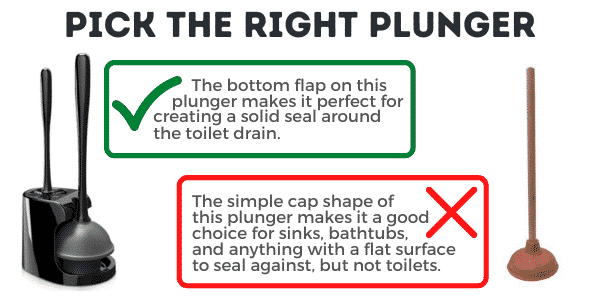
- Get out your plunger. (Although most people only have one, there is actually a difference between a sink plunger and a toilet plunger. You need the latter like this one.) Plungers will not help to remove the clog from your pipes, but it may loosen it enough for it to pass through.
- If you have the storage space, you should consider keeping a toilet snake (here is a good example that also comes with sturdy gloves), also called an augur, around for emergencies as it can often save you from having to call a plumber for a clogged toilet.
- Our 25 Foot Drain Auger is a great household tool for quickly unclogging any drain including kitchen and bathroom sinks, bathtubs, showers, and drainage pipes.
- 1/4 Dia. Drain Cleaning Cable with spiral head designed for 1-1/4 through 3 pipes.
Prices pulled from the Amazon Product Advertising API on:
Product prices and availability are accurate as of the date/time indicated and are subject to change. Any price and availability information displayed on [relevant Amazon Site(s), as applicable] at the time of purchase will apply to the purchase of this product.
Can baby wipes ruin your plumbing?
Baby wipes on their own are unlikely to ruin your plumbing but they can easily clog it.
Provided that you find a safe and effective method to remove the baby wipes, your plumbing shouldn’t have any long-term issues!
Natural ways to clear a clogged toilet
If you don’t want to use bleach or sulfuric acid but aren’t ready to call the plumber, you can try loosening the clog with household cleaners. Be careful though – even innocuous cleaners can turn dangerous if you mix them incorrectly!
Baking soda and vinegar
The same chemical reaction that made your elementary school volcano explode might help loosen the clog in your toilet!
Dump one cup of baking soda into your toilet, then follow it with a mixture of two cups of hot water and two cups of white vinegar.
The water should be hot to the touch but not boiling otherwise you risk cracking the porcelain. Let sit for half an hour, then try flushing.
Soap and water
It may sound silly, but a little wash may be all your pipes need.
Pour half of a cup of dish soap (especially one with a degreasing agent), dish detergent, or even liquid hand soap into your toilet then follow it with several cups of very hot water.
The water should be hot to the touch but not boiling otherwise you risk cracking the porcelain. Let sit for a few minutes, then try flushing.
What do I do if I used to flush baby wipes down the toilet?
If you have previously been taken in by packaging that claimed your baby wipes were flushable but have not yet experienced a clog, be thankful but stay alert.
If you have a septic tank, you may want to consider having a professional come out and check it, especially since it should probably be pumped every couple of years. Depending on the size of your tank, it may be a pricy precaution, but it is better than the alternative.
Conclusion
While it’s convenient in the moment to flush baby wipes in the toilet, it inevitably causes a hassle in the long run. The same qualities that make them so useful for cleaning kid messes make them impervious in your pipes.
Don’t rely on Drano or other chemicals to dissolve baby wipes. Instead, plan on manually removing the wipes from your plumbing. And, if you can’t do it yourself, you’ll get to pay a pretty penny to a plumber to do it for you.

